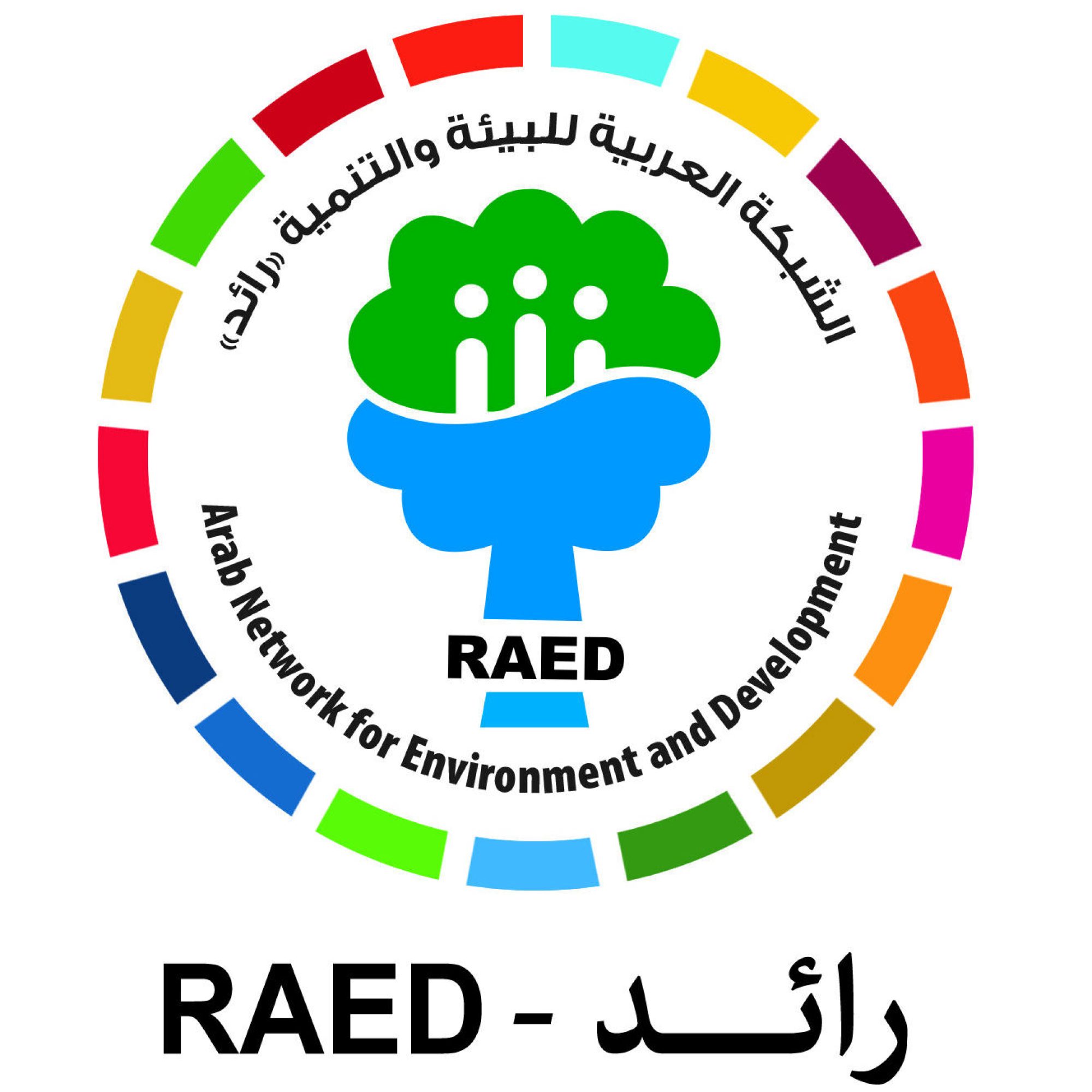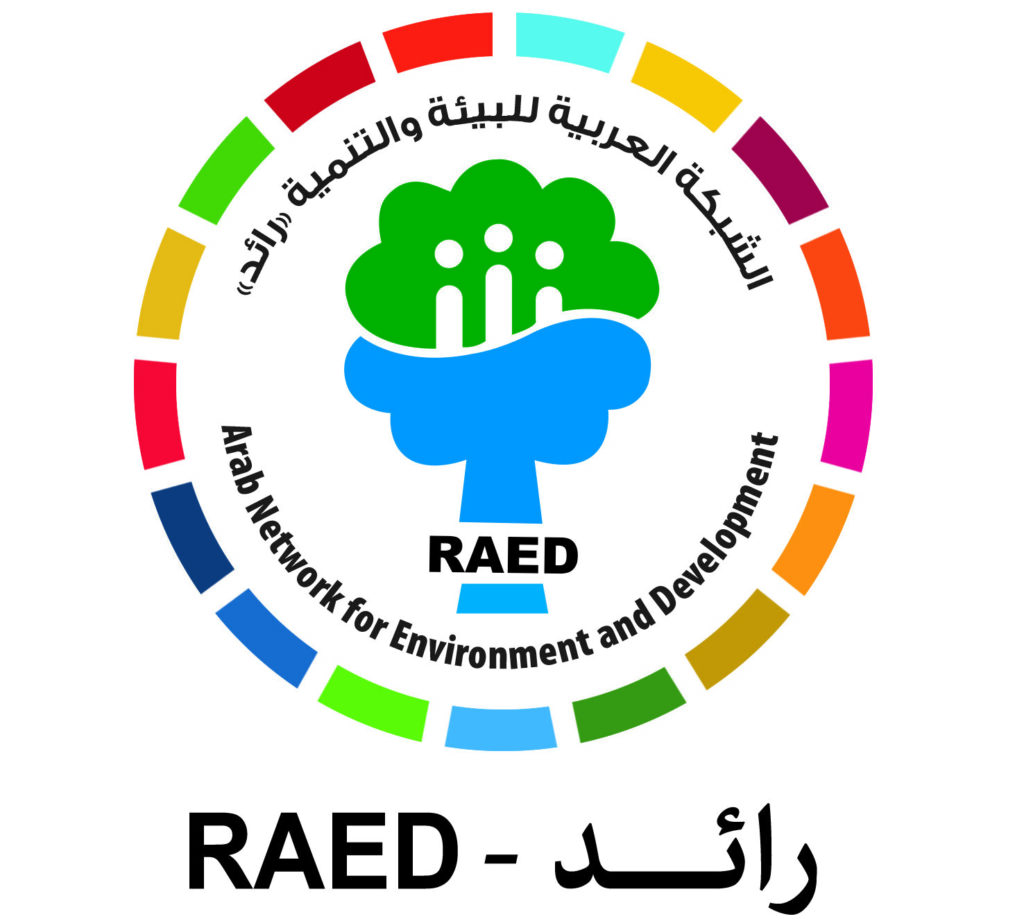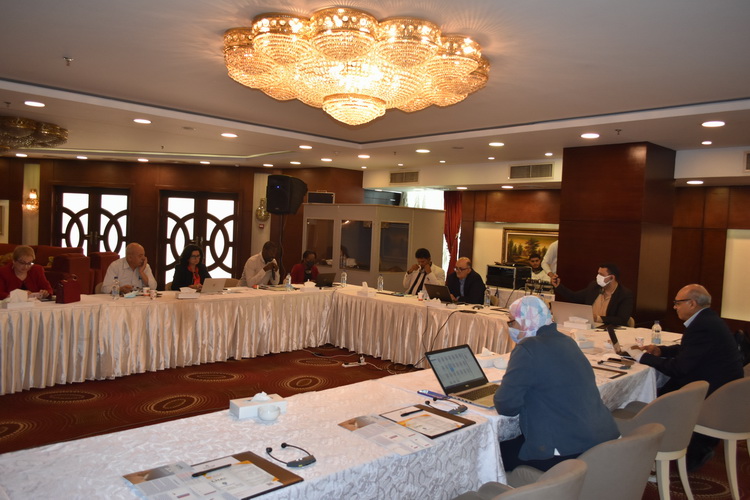Strengthening civil society participation in disaster risk reduction plans in the Arab region
The Regional Advisory Group in the Global Network of Civil Society Organizations for Disaster Risk Reduction, from the Arab region, called for the need to work to enhance civil society participation in developing and formulating the implementation of plans to reduce disaster risks, whether natural or man-made, at the national, regional and international levels.
The members of the GNDR Advisory Group held a meeting in the Egyptian capital, Cairo, over the course of December 12 and 13, 2021, in the presence of representatives of the national focal points in Jordan, Iraq, Lebanon, Palestine, Tunisia, and Yemen, in addition to Egypt, while representatives of the focal points in Kuwait, Mauritania, Morocco, and Sudan participated. And Bahrain online.
The meeting came nearly a month after the Fifth Arab Regional Forum on Disaster Risk Reduction was held in Rabat, Kingdom of Morocco, from November 8 to 11, 2021, to confirm what was stated in the “Rabat Declaration” issued at the conclusion of the forum.
The participants in the Cairo meeting confirmed, through a statement issued at the conclusion of the meeting, that the North Africa and West Asia (NAWA) region faces many challenges due to disasters resulting from natural and biological hazards, such as earthquakes, floods, landslides, storms, droughts, epidemics, fires, forest fires, agricultural crops, and other problems. Disasters caused by human activities, such as political conflicts, migration and violence, that directly affect the environment, population, displacement, human movements and infrastructure.
The statement pointed out that since the tsunami disaster in 2004, attention has begun to be paid to the important and vital role that civil society organizations and local communities can play to mitigate the effects of natural or man-made risks and disasters, which is the role and responsibility of each of the global network of civil society organizations to reduce risks. Disasters (GNDR) at the global level, and the Arab Network for Environment and Development (RAED) considers it one of its work priorities of great importance.
The meeting participants expressed their full awareness of the increasing frequency of risks, and the resulting scale of human and economic losses, and therefore it is necessary to work closely with central governments, local governments, and local communities in particular, and assist them in formulating and implementing community resilience plans.
The members of the Regional Advisory Committee expressed their belief that the political will for civil society organizations to participate in disaster risk reduction efforts in the Arab region has become a reality, but there is still a need to see this reflected in national and local implementation plans, with the full participation of relevant stakeholders, Including civil society organizations.
Members also stressed the importance of developing the capabilities of RAED network members in the region, to enable them to become effective partners, while recognizing the need to provide the enabling environment for establishing partnerships between civil society organizations active in the field of disaster risk reduction, to fully participate in national and local initiatives.
In its statement, the Advisory Group called on governments and other partners to support the process of knowledge exchange and the availability of data on an ongoing basis, to ensure transparency and full participation of various actors, while working to develop a financial and human mobilization strategy approved by the Global Network (GNDR) for the North Africa and West Asia region, To empower area members and civil society organizations, so that they have a share of the available resources allocated to disaster risk reduction at the national and local levels.
Members also stressed the importance of participating fully in the preparation and development of important events in the short term, including the coordination meeting of the Arab League Mechanism (March 2022), the Minamata Agreement (March 2022), the Global Forum in Indonesia (May 2022), and the Seventh Conference of the Parties. The twenty-first anniversary of the United Nations Framework Convention on Climate Change, which will be held in Egypt (November 2022).
The group emphasized contributing to the implementation of national and local strategies and plans on disaster risk reduction, and then putting it in an active position in implementing the “Sendai Framework” on disaster risk reduction, the Arab strategy for disaster risk reduction, the national strategies of each country, and the strategy of the Global Network for Disaster Risk Reduction. of disaster risks (2020 – 2025), and thus work to design their plans based on risk-conscious development, to be compatible with the Sendai Declaration, the Arab Strategy for Disaster Risk Reduction, national strategies, strategies of the Global Network for Disaster Risk Reduction for Sustainable Development, and climate change policies, Preserving biodiversity and ecosystems.
He called on members to enhance opportunities to exchange knowledge, expertise, experiences and good practices in the work of the Global Network for Disaster Risk Reduction and the Arab Network for Environment and Development, which is represented by the Views from the Front Line (VFL) program and the study recently prepared by the RAED Network, with the support of the United Nations Office for Disaster Risk Reduction. of Disaster Risk Reduction (UNDRR) for each country’s national members, with support from the Global Network of Civil Society Organizations for Disaster Risk Reduction (GNDR).
The group recommended implementing activities directed to members of the Global Network for Disaster Risk Reduction in the North Africa and West Asia region regarding health and better recovery from the current effects of the “Covid-19” pandemic, targeting supporters and members of the GNDR network on the basis of gender balance, taking into account senior age, children, youth and persons with disabilities, with particular attention to biological risks as part of the work of GNDR members in the NAWA region, building on lessons learned from the ongoing pandemic. It also called for a shadow report on progress made in the Sendai Declaration, on Mid-term review, in close cooperation with each member at national level


